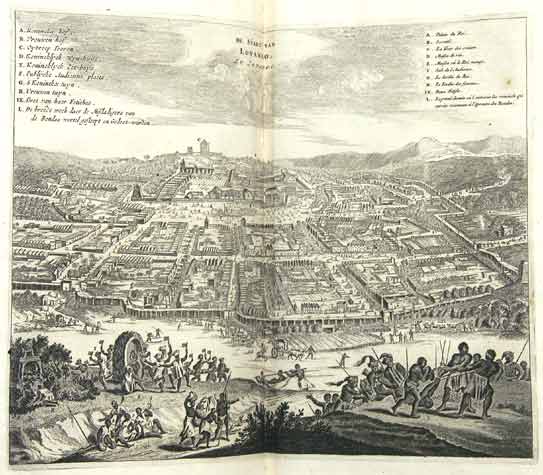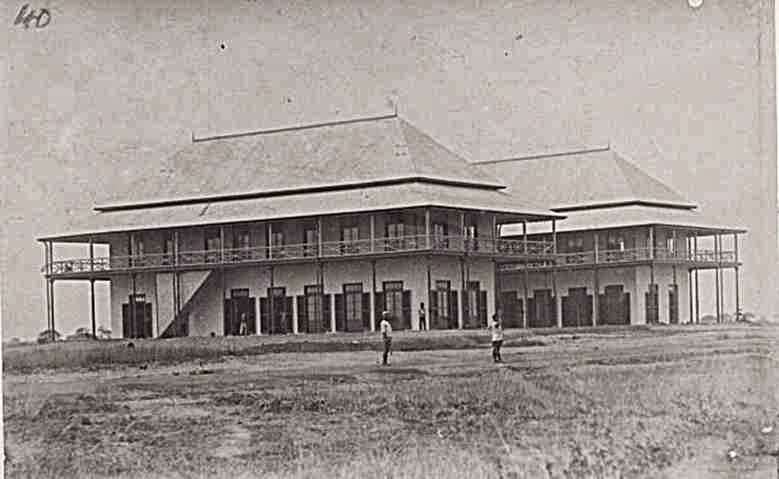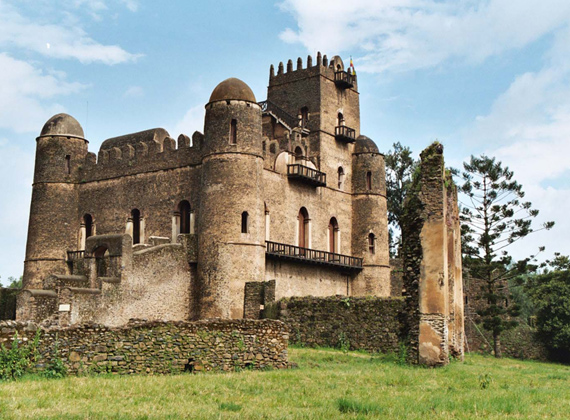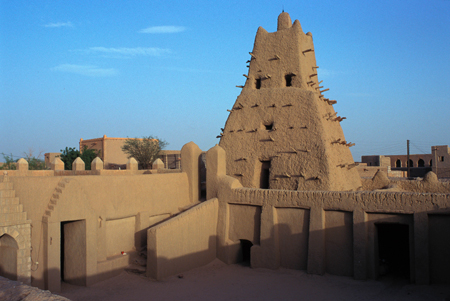Part 2
Alhaji (Dr) Aminu Alhassan Dantata
(May 1931-)
(Aliko Dangote’s granduncle)
Dr Aminu Alhassan Dantata (CON) is a wealthy Nigerian businessman and philanthropist from Kano.
Dr Aminu Dantata was born in Kano to legendary businessman Alhassan Dantata and Amina Umma Zaria. He began his career in 1949 as a produce buyer in the family business of Alhassan Dantata and Sons Limited. After the death of his brother, Ahmadu Dantata, he became the principal heir to the Dantata family business. He became the Chairman and Managing Director of the company in 1960, a position he holds till date.
However, in the late 1960s, he worked with the newly created Kano State as a commissioner. He left in 1972 to partake in the nation’s industrial drive and was known to have bought shares in major companies including Mentholatum, Raleigh Industries, SCOA, Nigerian Pipes, Northern Nigeria Flour Mills and later, Kano State Oil Mills. During the period, the Dantata business expanded in the North, supplying fertilizer, jute bags, rice and cement to various state governments. It also expanded its importing ventures by bringing in building materials and automobiles, in the case of the latter; it was a distributor of Mercedes Benz cars in the country.
The business also invested in large scale farming, with holdings in Asada Farms. Dr. Dantata was a member of the Steering Committee of the Nigerian Industrial Development Bank Limited, and served as a director of the bank between 1962 and 1966. He has led several trade missions to several countries across the world.
He was noted, together with Chief M.K.O Abiola, as being one of the wealthier Nigerians in the 1970s, 1980s & 1990s.
He is currently the Chancellor of Katsina Islamic University and the patron of the Kano State Foundation. The foundation engages in the provision of social services and credit to Kano State indigenes. He is also affiliated with Nigeria’s proposed Islamic Bank, Jaiz and earlier in his life with some Tijaniyya scholars, including Mohammed Kafanga. He was a former member of the Kano Provincial Loans Board.
Dr. Dantata has also held several public offices, including Chairman, Board of Trustees, Islamic Forum of Nigeria, Aminu Kano Memorial College, Kano. He is the proprietor, Dantata Memorial School, Kano; Life patron, Nigerian Chamber of Commerce, Industry, Mines and Agriculture, Kano, National Council of Farmers and the Nigerian Association of Small Scale Industries among several others.
Part 4
Abdulkadir Sanusi Dantata, September 1 1945- February 7 2012 (Aliko Dangote's uncle). He gave Aliko Dangote a business loan with which Dangote started the Dangote Group
The late Alhaji Dantata was born in Sarari Dantata Quarters in the ancient city of Kano to the famous Dantata family on September 1, 1945. He was the eldest son of Sanusi Dantata, son of business mogul and patriarch, Alhassan Dantata, but by dint of hard work, he built a stupendous fortune for himself.
Not even the family's renowned business and trade patrimony, which had already guaranteed him a financially secure future, could stop the late Dantata from knowledge acquisition. This took him first to Sudan and then Kumasi, Ghana, where he obtained a certificate in advanced Islamic studies in 1956. Four years later, he returned to Nigeria to complete primary education at Kuka Primary School, ***ge in Kano. Unlike some of his peers, a thirst for knowledge nudged him on to acquire the Grade Two Teachers’ Certificate in 1968 before he joined the family business of cotton, groundnut and other agricultural products. In fact, the family business line was the largest licensed produce-buying agent of groundnut in Nigeria in the 1960s.
BUSINESS
Alhaji Dantata would not be content with that; he needed to express himself as he established his Dantata Land and Sea, a company that was into transportation, civil engineering and farming. The business initiatives further crystallised into one of the biggest construction firms - Dantata and Sawoe (founded in 1975) - which he partnered with German interests. As chairman of various business interests including the Asada Group, Brunelli Construction Co. Ltd, WJ Syndicate, Goguwasia Trading Company, Beijing-China, the sky was his limit. His business empire traversed construction, shipping, farming, trading and manufacturing.
Long before he died on February 7 this year, he had deservedly earned for himself the national award of the Commander of the Order of the Federal Republic (CFR) for his industry and contributions to the development of the country.
A stream of eminent personalities and well wishers at his burial could have indicated his disposition to people and life generally. Dantata’s health challenges may have cut short his other taller ambitions, but he would remain a beacon of hope and inspiration to budding businessmen.
Part 5
Dr Mariya Sanusi Dangote (nee Dantata)
Billionaire businesswoman, Dr Mariya Dangote, is the daughter of Sanusi Dantata and granddaughter of legendary businessman Alhassan Dantata. She is married to Mohammed Dangote (a business associate of Alhassan Dantata) for whom she had Aliko Dangote, a multi-billionaire businessman. Her brother is Abdulkadir Sanusi Dantata, one of the founders of Dantata & Sawoe Construction Company and Asada Farms.
She sits on the boards of numerous companies, including MRS Oil and Gas, Mentholatum Nigeria Limited and the Dangote group. She is also known for her philanthropy, donating a hospital, which she built at Rijiya Lemu, to the Kano State Government in 2003.
Part 6
Alhaji Aliko Dangote
Aliko Dangote was born in the northern Nigerian state of Kano on April 10, 1957 into a wealthy Hausa-Muslim family. His mother Mariya Sanusi Dantata was the granddaughter of legendary businessman Alhassan Dantata, and his father Mohammed Dangote was Dantata’s business associate.
Dangote had an early interest in business “I can remember when I was in primary school, I would go and buy cartons of sweets and I would start selling them just to make money. I was so interested in business, even at that time.” He attended the Al Azhar University in Cairo, Egypt (the oldest university in the world) studying business studies, before working for his uncle Sanusi Abdulkadir Dantata who eventually gave him a business loan at the age of 21.
Dangote Group
Dangote started trading commodities and building materials in Kano in 1977. He moved to Lagos that summer and, encouraged by the success of his business ventures so far, incorporated two companies in 1981
The Dangote Group, originally a small trading firm founded in 1977, is now a multi-trillion-naira conglomerate with operations in Benin, Ghana, Nigeria, Cameroun, Zambia, South Africa and Togo. Dangote’s businesses include food processing, cement manufacturing, and freight. The Dangote Group dominates the sugar market in Nigeria: it is the major sugar supplier to the country’s soft drink companies, breweries, and confectioners. Dangote Group has moved from being a trading company to Nigeria’s largest industrial group, including Dangote Sugar Refinery (the most capitalized company on the Nigeria Stock Exchange, valued at over US$3 billion with Aliko Dangote’s equity topping US$2 billion), Africa’s largest Cement Production Plant: Obajana Cement, Dangote Flour amongst others.
Aliko Dangote has a knack for seeing opportunity that others can't see. He approached the Nigerian Ports Authority with the idea of leasing an abandoned piece of land at the Apapa Port, where he subsequently built facilities for his flour company. When other flour companies protested, the chairman of the NPA, Chief Olabode George stated that Dangote was the one who came up with the idea. Similarly, in the 1990s he approached the Central Bank of Nigeria with the idea that it would be cheaper for the bank to allow his transport company to manage their fleet of staff buses.
Today Dangote Group dominates the sugar market in Nigeria and Dangote Sugar Refinery is the main supplier (70% of the market) to the country’s soft drinks companies, breweries and confectioners. It is the largest refinery in Africa and the third largest in the world producing 800,000 tonnes of sugar annually. Dangote Group also owns salt factories and flour mills and is a major importer of rice, fish, pasta, cement and fertilizer. The company also exports cotton, cashew nuts, cocoa, sesame seed and ginger to several countries. Dangote Group also has major investments in real estate, banking, transport, textiles and oil and gas. It employs over 18,000 people and is the largest industrial conglomerate in West Africa.
Dangote is branching into telecommunications and has started building 14,000 kilometres of fibre optic cables to supply the whole of Nigeria. He was honoured in January 2009 as the leading provider of employment in the Nigerian construction industry.
“[Nigerians] can be even bigger than me, ” he said “you just have to believe that yes, there is a future in this country of ours and I can tell you right now, I don’t believe we have even started doing anything in Nigeria because the opportunities are so enormous. I don’t even know where to start.
“Let me tell you this and I want to really emphasize it…nothing is going to help Nigeria like Nigerians bringing back their money. If you give me $5 billion today, I will invest everything here in Nigeria. Let us put our heads together and work.”
 to all who are participating.
to all who are participating.

 The plan worked so well that in no time at all most of present day Iraq, Bahrain and parts of Iran came under their rule.
The plan worked so well that in no time at all most of present day Iraq, Bahrain and parts of Iran came under their rule. these brothas man... I don't think we would have it in us today.
these brothas man... I don't think we would have it in us today. 

The plan worked so well that in no time at all most of present day Iraq, Bahrain and parts of Iran came under their rule.
these brothas man... I don't think we would have it in us today.












